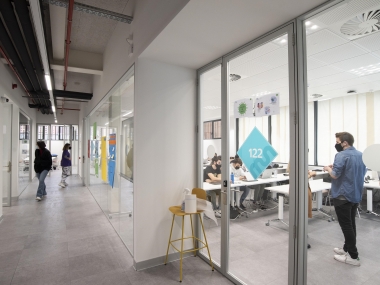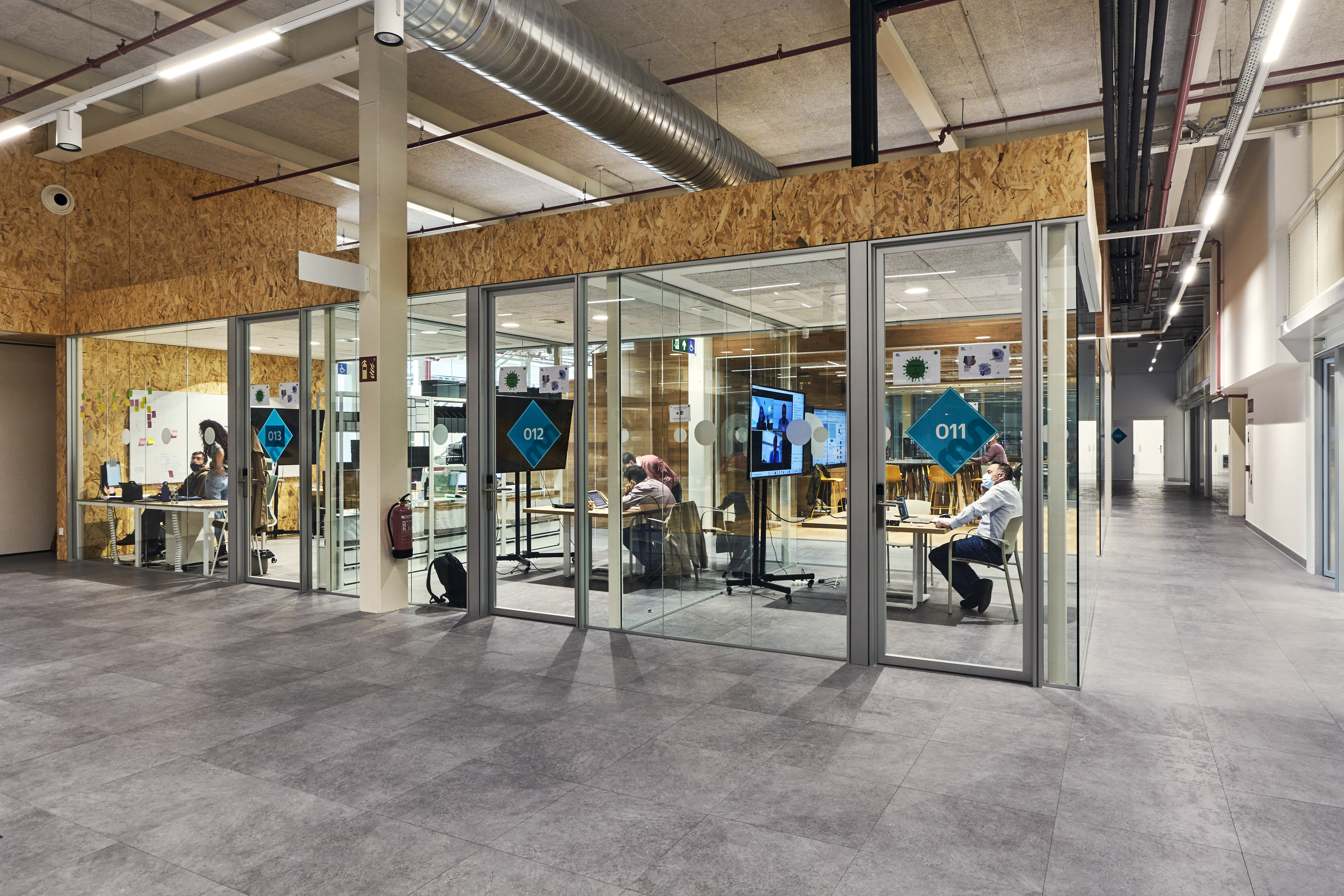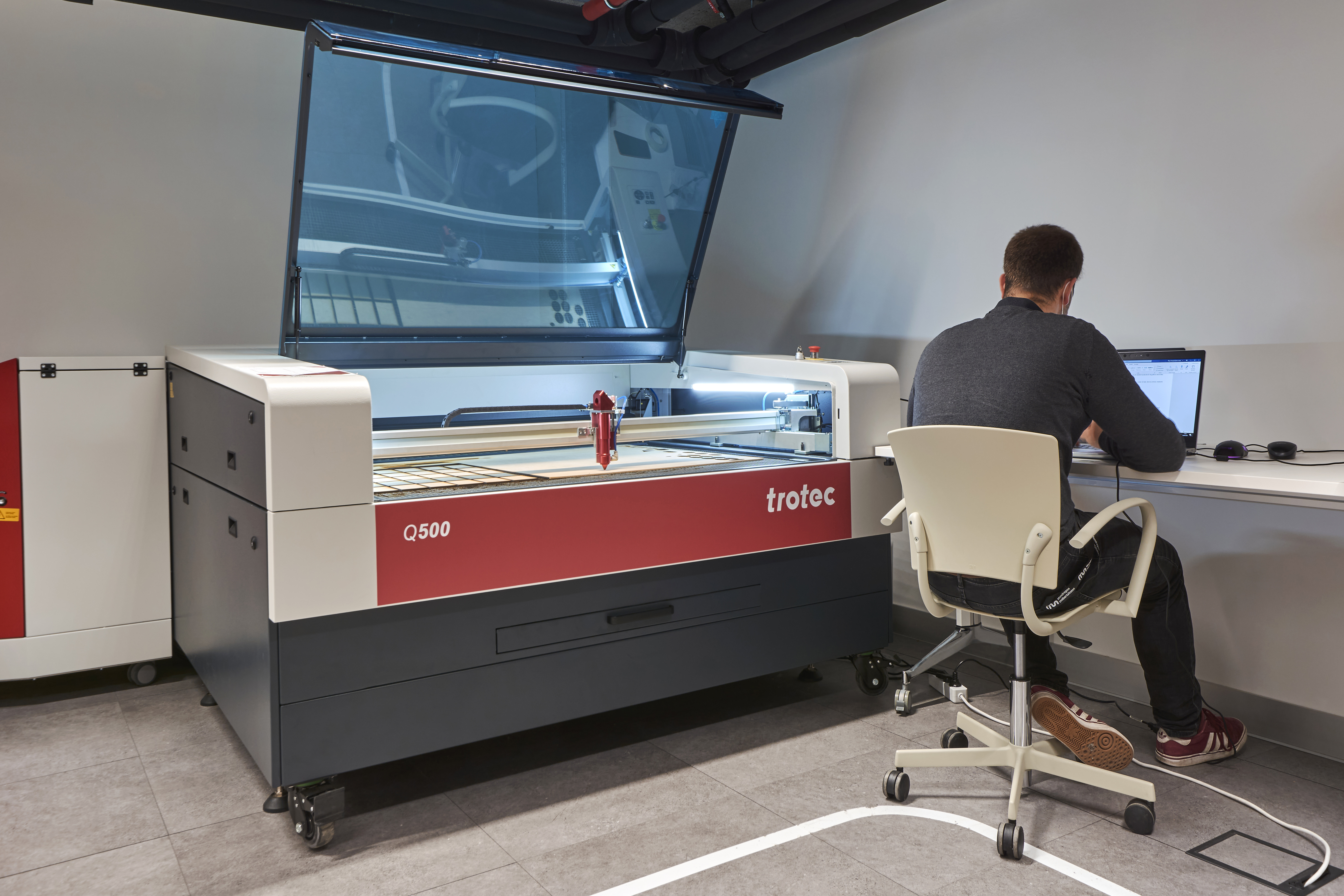"The Urban Industry 4.0 Talent Ecosystem: 7 Challenges"
Edited on
09 June 2022"The Urban Industry 4.0 Talent Ecosystem: 7 Challenges" by Willem van Winden, URBACT Lead Expert
In many European cities, manufacturing industries are still important drivers of their economy. But the sector is in a process of transformation, under the influence of new technologies (robotisation, digitalization, new materials) and the urge to produce in a sustainable way. This transformation puts new demands on the skills and competences of people that work in the industry, but also on educational institutes in the city that educate the new talent flowing into the sector. How to create a local/urban talent ecosystem that is future proof? This article identifies seven key challenges that industrial cities face in this respect. It is based on in-depth interviews with companies, educational institutes, policymakers and experts in four industrial cities united in the AS-Transfer project: Bilbao, Bielsko-Biala, Tartu, and Timisoara.

1 Have enough qualified teachers and professors
A basic precondition is to have enough qualified teachers and professors that can teach the students on various levels. In all our partner cities, the average age of the teaching corps is high, and the inflow of young teaching talent falls behind what is needed.
A problem in many cities is that a career in education or academic research is not attractive enough. Wages are (much) lower than in the private sector, especially in much-demanded professions for which STEM and IT skills are needed. Moreover, career opportunities are less favourable, and the bureaucracy of educational institutes does not add to the work satisfaction.
Also, in many cases, mobility between companies and education and dual careers are still rare, whereas educational institutes could benefit from having teachers with company experience. Many of these problems derive from central government regulation, but on the local level, things can be achieved with creativity and concerted action in which educational institutes and companies share their concerns and develop joint initiatives.
2 Make sure that education is sufficiently practical and up-to date
In some cities, linkages between academic education and industrial firms are very limited, internships are not an integral part of the educational programme, and students are insufficiently prepared for working in a company. Often, academic education is still predominantly theoretical and unlinked to industry. In Timisoara, because of a lack of practical training in the official curricula, many university students take a part time job at companies during their studies. This is good for their career but there is no link with education. A good connection between industry and education&research is important to ensure that education is up-to-date and in line with the new and rapidly evolving demands in the industry 4.0 sector. This connection may take several forms. In Tartu, the vocational school started a project to have teachers enrolled in “internships” in companies, so that they are updated on the practices and needs of firms; Also, they set up pilot programmes in which companies deliver certified courses in the fields of metal and mechatronics. The University of Tartu developed the Industrial Masters in IT programme, that takes place for 50% in the university and for 50% in companies.
Moreover, industry and education may share (expensive) new equipment such as laser cutting machines, as is done in the AS-FABRIK building in Bilbao.
3 Connect education & research better with local SMEs
Often, larger (multinational) firms already have good contacts with university research groups, and also have internal training programmes for their staff. But the link between educational institutes and smaller industrial SMEs, which are the backbone of the industry 4.0 ecosystem, is much less developed in our partner cities.
firms already have good contacts with university research groups, and also have internal training programmes for their staff. But the link between educational institutes and smaller industrial SMEs, which are the backbone of the industry 4.0 ecosystem, is much less developed in our partner cities.
SMEs typically do not have dedicated staff for this and are too overwhelmed with daily business to tackle these more strategic issues. Here, the city might step in as a broker, facilitating the connection between groups of SMEs and education.
4 Increase the number of STEM students
In all partner cities in AS-Transfer, there is a dearth of STEM and ICT students. This can be addressed in several ways: action programmes in primary/secondary education, open days at companies, promotion campaigns at local media, providing materials for schools and training for teachers (see Aveiro Tech Labs for inspiration). A promising route is to have more girls going for STEM courses, they are still largely underrepresented in education and STEM-related jobs.
The city of Tartu is working on it, and organized some roundtables with the businesses. There are already positive signs. Sigrid Tani, from the Tartu vocational training institute: “we hope this will change in time – girls are now joining robotics camps so hopefully this will reap some reward longer term”.
5 Revalue non-academic types of education
In Industry 4.0, there is a large demand for skilled workers on the level of vocational training (4-5 European level), who have practical engineering & digital skills, not necessarily academic degrees. Also, salaries for these professionals are good. But despite this, in all our partner cities, the societal valuation of this type of education is still low compared to the academic (Bachelor/Master) level, and there is a misconception that career opportunities are fewer. In Tartu, we heard of cases where recent academic graduates could not find a job, then moved back to vocational education to learn practical skills, and easily found work afterwards. Here again, information & awareness campaigns can help, jointly organized by the industry and the educational sector.
6 Organise life-long learning trajectories
In most partner cities, educational institutes still largely focus on training young people for their first job. They do little to train people who are already in work, despite the fact that rapidly changing work practices make the need for staff training enormous. Such LLL trajectories require coordination and must be set up in close collaboration between public, private and educational sectors.
A great example from Tartu is the Conversion Master in IT, for employees with no IT background who want to retrain.
7 Train the policy makers!
Industry 4.0 is a complex field, with new technology developments (digital tech, robots, new materials, green technology etc.), but also with changing economic&business models, a growing need for inter-organisational collaboration, and new types of public-private partnerships to develop the local industry 4.0 ecosystem. Local politicians and policymakers are expected to develop effective policies to develop their ecosystem, and are responsible for economic programmes in the size of millions of euros. Therefore, it makes sense to develop educational/training programmes so that they are up-to-date with the latest developments in industry 4.0 and can better design and implement their policies. This is what Bilbao did in their AS-FABRIK project: organize a series of training sessions for politicians and policymakers.
Submitted by Cristina Urizar on
